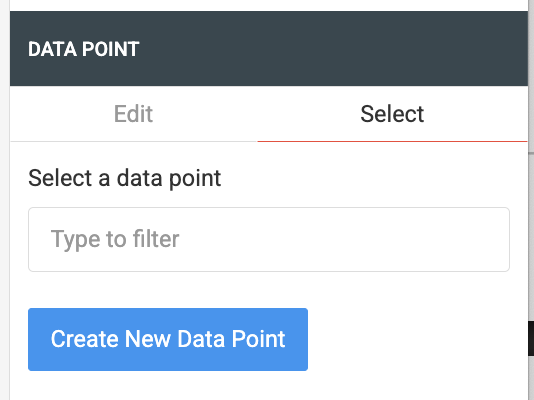Value Input / Value Output
Value input and Value Output serve as link to the system within the group (KNX system & other EIBPORT functions). You can use your existing /wiki/spaces/LEHC/pages/28050093 in "Value Input" and "Value Output", or you can manually create new ones.


Contents
Inputs and outputs
Value Input and Value Output are the interfaces of a group to the outside. Each of these logic elements is linked to a Data Point. The type of data point determines the number of inputs and/or outputs of the logic element.
You can find an overview of the input and output configuration for each specific data type on the page Data Point Types in LOGIK EDITOR.
Value Output: The TRIGGER Input
As previously mentioned, the number of inputs of a Value Output depends on the data type of its data point. Complex data types, those that consist of more than one value, automatically receive an additional TRIGGER input. It can be connected optionally. The reason for this input is the fact that there are no simultaneous events. If you set the value of n inputs, there will be n new total values for this data point, in quick succession.
If the TRIGGER input is not connected, then the Value Output will send the new compound value of a complex data type on every change of one of its inputs. If it is connected, then the Value Output will only send the compound value when the TRIGGER input receives an event. This allows you, in combination with an Distributor, to prevent that undesired "intermediate values" reach the outside.
An example: The values 33, 66, 99 are currently set at the RED, GREEN, BLUE inputs of a Value Output with data type 232.600. The logic group does now set the new color 66, 99, 33. Without TRIGGER input, the Value Output will send three colors consecutively:
66, 66, 99
66, 99, 99
66, 99, 33
But with the correct usage of an Ordered Output and a connected TRIGGER input, you can ensure that first the three inputs RED, GREEN, BLUE will be updated with the new values, before finally the TRIGGER input receives a signal. Then the Value Output will only send once, sending the new value 66, 99, 33.
In case of an RGB color data type, you could also circumvent this issue by using the combined Data Type Color and the COLOR input, as is recommended. But this might not be desired in every logic, and other data types cannot offer a comparable workaround.
Configuration
The configuration of value input and value output is largely identical. Value inputs have one additional option: "Send on Initialization". If this is enabled, the value input will send the current value of the data point into the logic group. If the data point is not yet initialized at that moment, the value will be sent immediately after its initialization.
Here, you can select an existing data point, create a new data point or edit a data point already selected. The rules for configuring and creating the data points are described in chapterData Point.

Please note that the changes to an already existing data point will also affect other inputs and outputs relying on this data point. This particularly holds true for changes affecting the number of inputs and outputs. In such a case, possible links will be lost irretrievably.
///
